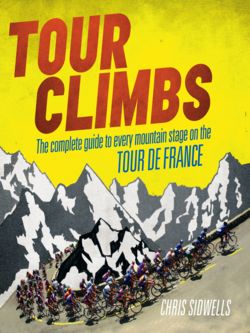Читать книгу Tour Climbs: The complete guide to every mountain stage on the Tour de France - Chris Sidwells - Страница 5
The Tour de France
ОглавлениеThe Tour de France is the biggest annual sporting event in the world. For three weeks it has priority over a nation’s roads. As long ago as the 1960s a French writer said that President De Gaulle might run the country for eleven months but in July, France was ruled by the Tour.
A social scientist could probably come up with a clever reason why a bike race has captured the hearts of a nation. But I think that one reason could be the setting. France is a beautiful country, and any sporting event run off against a backdrop of stunning scenery is onto a winner for a start.
Another reason could be that July is holiday time in France. People associate the Tour with being away from the every day, being free and having fun. To realise how true this is, you only have to visit any village when the Tour passes by. On a flat stage the riders stream past in seconds, but in each village an all-day party will be held.
Then there are the riders themselves. The Tour de France is hard, maybe the hardest sporting event in the world. There are flat days of super fast racing, a painful crash in the tight pack of 200 riders is only a moment’s inattention away. In contrast the mountains split up the race, with every rider having to fight on his own battle against nature.
The race forges heroes, it creates colourful characters. Hard workers who people identify with. You don’t fluke the Tour de France. Just finishing is a triumph, and winning places a man in the pantheon of champions. The race has its faults. Some riders want to win too much and have cheated. But the Tour de France is fighting that, and the race has somehow become nobler because of it.
